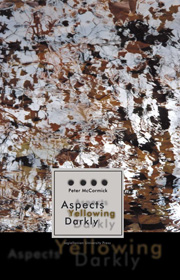 Aspects Yellowing Darkly
Aspects Yellowing Darkly Book contents
- Frontmatter
- Dedication
- Epigraph
- Contents
- PREFACE
- ORIENTATIONS – Moral Intuitionisms and the Emerging Europe
- PART ONE FIRST READINGS
- PART TWO SECOND THOUGHTS
- Chapter Five Montale and Ethical Emancipation from Suffering
- Chapter Six Valéry and the Visual Perception of Suffering
- Chapter Seven Eliot on Moral Discourse on Suffering
- Chapter Eight Residues and Surfeits of Sense
- ENVOI
Chapter Seven - Eliot on Moral Discourse on Suffering
from PART TWO - SECOND THOUGHTS
Published online by Cambridge University Press: 05 September 2014
- Frontmatter
- Dedication
- Epigraph
- Contents
- PREFACE
- ORIENTATIONS – Moral Intuitionisms and the Emerging Europe
- PART ONE FIRST READINGS
- PART TWO SECOND THOUGHTS
- Chapter Five Montale and Ethical Emancipation from Suffering
- Chapter Six Valéry and the Visual Perception of Suffering
- Chapter Seven Eliot on Moral Discourse on Suffering
- Chapter Eight Residues and Surfeits of Sense
- ENVOI
Summary
We already discussed Eliot's high modernist poetry of suffering in chapter two with the help of a close look at some of the persistently difficult issues involved in understanding the cardinal notion of literal meaning. There we formulated several initial findings with the help of some of Donald Davidson's sustained reflections on so-called deviant uses of language. We then proceeded with both our first readings and, after an Interlude, with second thoughts about the high modernist poetry of suffering in Valéry's poetic prose and in Montale's poetry. Now we need finally to return for second thoughts to Eliot's poetry and to reconsider several still unresolved issues regarding literal meanings.
Meanings and Truths
In one of his many important papers the distinguished English philosopher, Michael Dummett, has commented extensively on Davidson's views. These comments both clarify several of Davidson's ideas as well as provide a comparative perspective on meaning that is quite useful for our concerns with the European high modernist poetry of suffering. Dummett's comments also bring into focus one of Davidson's radical and yet deeply puzzling claims. The claim follows from Davidson's apparent inability comprehensively to explain linguistic communication with the help of a set of linguistic principles flexible enough to accommodate the literal or first meanings of deviant expressions that occur very oft en in poetic and dramatic uses of language.
That important claim runs: “There is therefore no such thing as a language, not if a language is anything like what many philosophers and linguists have supposed it to be” (445).
- Type
- Chapter
- Information
- Aspects Yellowing DarklyEthics, Intuitions, and the European High Modernist Poetry of Suffering and Passage, pp. 157 - 172Publisher: Jagiellonian University PressPrint publication year: 2010


